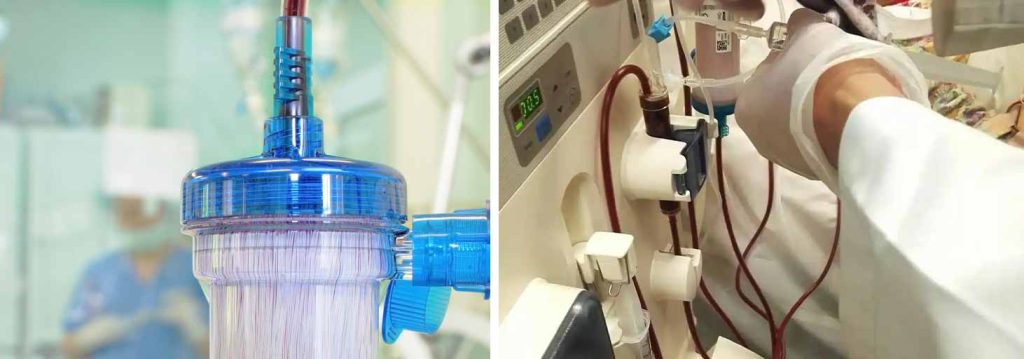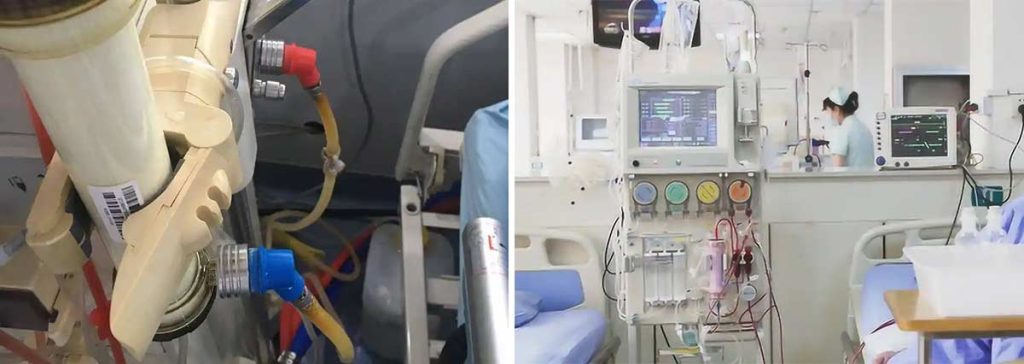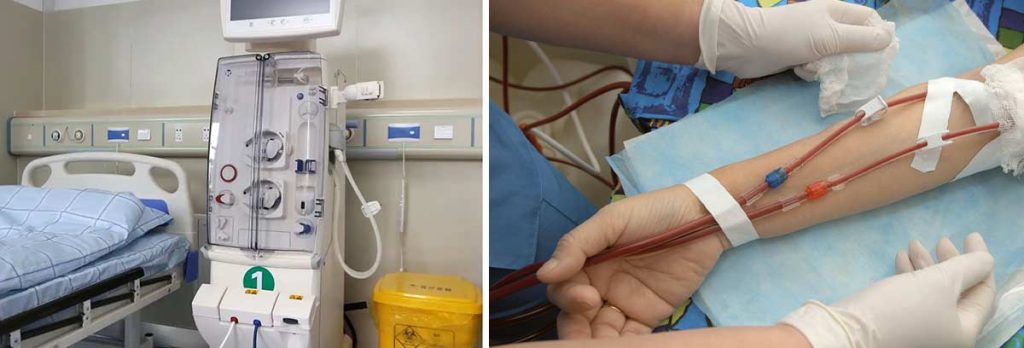

Dialysis treatment plays a critical role in managing chronic kidney disease, but it also introduces unique challenges for dental health, particularly in the context of dialysis and dental treatment. Dialysis patients often experience complications such as dry mouth, gum disease, and oral infections. These issues arise due to factors like salivary gland atrophy, altered immune responses, and systemic inflammation. Studies, including the ORAL-D research, highlight the prevalence of oral diseases in dialysis patients, emphasizing the need for better care in dialysis and dental treatment. Understanding the oral health connection in this population is essential for improving overall well-being, especially for those awaiting a kidney transplant.
Key Takeaways
- Dialysis patients have special dental problems like dry mouth and gum disease. They need extra care.
- Going to the dentist often helps find and fix problems early. This stops bigger issues from happening.
- Brushing and flossing every day lowers the chance of infections. It also keeps you healthier overall.
- Plan dental visits on days when you don’t have dialysis. This makes treatment safer and more comfortable.
- Dentists and kidney doctors should work together to give the best care for dialysis patients.
Dialysis and Its Impact on Dental Health
How Dialysis Affects the Body?
Dialysis serves as a life-saving treatment for individuals with chronic kidney disease. However, it also impacts various body systems, including oral health. Studies reveal that inadequate dialysis disrupts calcium and phosphorus metabolism. This disruption weakens bones and teeth, affecting oral health and overall well-being. Additionally, the uremic state in chronic kidney disease patients leads to systemic inflammation and altered immune responses. These changes make the body more susceptible to infections, including those in the mouth. Research also highlights that renal replacement therapy influences oral health-related quality of life (OHRQoL), emphasizing the interconnectedness of dialysis and dental treatment.
Connection Between Kidney Disease and Oral Health
Kidney disease significantly affects oral health due to its systemic nature. The ORAL-D study highlights a strong correlation between oral diseases and clinical outcomes in patients with end-stage kidney disease. Poor oral health in these patients is linked to higher hospitalization and mortality rates. Uremia, a condition caused by kidney dysfunction, exacerbates oral health issues such as periodontitis and gingival enlargement. Furthermore, the psychological burden of chronic kidney disease often leads to neglect of oral hygiene, worsening dental problems. These findings underscore the importance of addressing oral health as part of comprehensive care for kidney disease patients.
Common Oral Symptoms in Dialysis Patients
Dialysis patients frequently experience a range of oral symptoms. These include dry mouth (xerostomia), bad taste, and oral infections. Gingival enlargement and uremic stomatitis are also common. The ORAL-D study systematically assessed these symptoms, revealing their prevalence and severity among dialysis patients. Altered immune responses and systemic inflammation contribute to these issues, as the body struggles to combat infections effectively. Additionally, poor oral hygiene habits, often linked to the stress of managing kidney disease, further exacerbate these symptoms. Addressing these oral health challenges is crucial for improving the quality of life in dialysis patients.
Oral Health Issues in Dialysis Patients
Dry Mouth and Its Effects
Xerostomia, commonly known as dry mouth, is a frequent issue among dialysis patients. Reduced salivary flow, often linked to chronic kidney disease, contributes to this condition. Saliva plays a crucial role in maintaining oral health by neutralizing acids, washing away food particles, and providing essential minerals for tooth enamel. Without adequate saliva, patients face an increased risk of tooth decay, bad breath, and oral infections.
The psychological burden of kidney disease can also lead to neglect of oral hygiene, worsening the effects of xerostomia. Studies highlight that dry mouth not only impacts oral health but also affects the overall quality of life. Patients often report difficulty speaking, chewing, and swallowing, which can lead to malnutrition. Addressing xerostomia through proper hydration, saliva substitutes, and regular dental care is essential for improving oral health outcomes.
Gum Disease and Periodontal Risks

Periodontal disease poses a significant risk for individuals undergoing dialysis. Uremia, a condition associated with chronic kidney disease, alters the immune system, impairing the body’s ability to fight Gram-negative bacteria. This weakened immune response increases the severity and prevalence of periodontitis in dialysis patients. Poor oral hygiene, often linked to the psychological stress of managing kidney disease, further exacerbates the problem.
Research demonstrates a strong correlation between dialysis and periodontal disease. For example, a study on periodontal inflamed surface area (PISA) revealed that patients on hemodialysis exhibited higher levels of periodontal inflammation compared to those on peritoneal dialysis. This inflammation not only damages gum tissue but also allows oral bacteria to enter the bloodstream, potentially leading to systemic complications such as cardiovascular issues. Regular periodontal care and improved oral hygiene practices are vital for reducing these risks.
Oral Infections and Healing Challenges
Dialysis patients face unique challenges in managing oral infections. The uremic state associated with chronic kidney disease impairs the function of immune cells, such as B- and T-lymphocytes, reducing the body’s ability to combat infections. Accumulated dental plaque and subgingival biofilm further contribute to inflammation and bacterial translocation into the bloodstream.
Healing from oral infections is often delayed in dialysis patients due to systemic inflammation and malnutrition. Periodontitis, for instance, has been linked to increased malnutrition and systemic inflammation in hemodialysis patients. A multidisciplinary approach, involving nephrologists and dentists, is essential for addressing these challenges. Improving oral health not only reduces the risk of systemic infections but also enhances the overall well-being of dialysis patients.
Dental Treatment Considerations for Dialysis Patients
Timing Dental Procedures Around Dialysis
Scheduling dental procedures for dialysis patients requires careful planning. Clinical guidelines recommend performing dental treatments on non-dialysis days or between dialysis sessions. This timing minimizes complications such as fatigue and bleeding risks. Patients often feel tired after dialysis, which can make dental visits more stressful. By scheduling procedures on off-days, dentists can ensure patients are more comfortable and better prepared for treatment.
Dentists should also collaborate with nephrologists to access critical medical information. Details like INR levels and platelet counts help assess bleeding risks and guide treatment decisions. This multidisciplinary approach ensures safer and more effective care for patients with chronic kidney disease.
Managing Bleeding and Infection Risks
Patients undergoing dialysis face an increased risk of bleeding and infection during dental procedures. Hemodialysis often leads to poor oral health due to salivary gland atrophy and limited fluid intake. These factors contribute to periodontal issues, which can exacerbate bleeding during dental treatments. Additionally, the weakened immune system in chronic kidney disease patients heightens the risk of infection.
To address these challenges, dentists should take preventive measures. Using local hemostatic agents and ensuring proper sterilization can reduce bleeding and infection risks. Encouraging patients to maintain good oral hygiene also plays a crucial role in minimizing complications. Regular dental visits and periodontal care are essential for managing these risks effectively.
Tip: Patients should inform their dentist about any medications or anticoagulants they are taking, as these can influence bleeding risks during procedures.
Medication Adjustments for Dental Care
Medication management is a critical aspect of dental care for dialysis patients. Many individuals with kidney disease take anticoagulants or other medications that can affect dental treatments. Dentists must review the patient’s medical history and consult with their nephrologist to determine if any adjustments are necessary.
For example, anticoagulants may need to be temporarily paused or adjusted before invasive procedures to reduce bleeding risks. However, this decision should always involve the patient’s healthcare team to avoid complications. Additionally, certain antibiotics may be prescribed to prevent infections, especially for patients awaiting a kidney transplant. Tailoring medication plans ensures safer and more effective dental care for dialysis patients.
Maintaining Dental Health During Dialysis
Daily Oral Hygiene Tips
Dialysis patients must prioritize daily oral hygiene to prevent complications. Brushing teeth twice daily with fluoride toothpaste helps remove plaque and protect enamel. Using a soft-bristled toothbrush minimizes gum irritation, which is common in individuals with chronic conditions. Flossing daily removes food particles and plaque from areas a toothbrush cannot reach. Antibacterial mouthwash can further reduce harmful bacteria in the mouth.
Patients should also clean their tongue regularly to prevent bad breath and bacterial buildup. For those experiencing dry mouth, rinsing with a non-alcoholic mouthwash or using saliva substitutes can provide relief. Consistency in these practices reduces the risk of oral infections and improves overall oral health.
Diet and Hydration for Oral Health
A balanced diet plays a vital role in maintaining oral health during dialysis. Foods rich in calcium and phosphorus, such as leafy greens and fortified cereals, strengthen teeth and bones. Limiting sugary snacks and beverages helps prevent tooth decay. Dialysis patients should also avoid acidic foods that can erode enamel.
Hydration is equally important, especially for those with dry mouth. Sipping water throughout the day keeps the mouth moist and aids in saliva production. However, patients with fluid restrictions due to kidney disease should consult their healthcare provider to manage their intake effectively. Proper nutrition and hydration support both oral and systemic health.
Importance of Regular Dental Visits
Regular dental visits are essential for dialysis patients. Dentists can identify and treat oral health issues early, preventing complications. Professional cleanings remove plaque and tartar that daily brushing cannot eliminate. Routine check-ups also allow dentists to monitor gum health and address any signs of infection.
Research highlights the importance of preventive dental care for dialysis patients. Poor oral health increases the risk of cardiovascular disease and infections, such as pneumonia. Regular dental visits help manage these risks by reducing oral bacteria and improving overall health. Establishing a system for accessible and affordable dental care ensures patients receive the treatment they need without added stress.
Conclusion

Dialysis patients encounter distinct dental health challenges that demand attention. Proactive care can significantly reduce risks and improve quality of life. Maintaining oral hygiene, such as brushing and flossing daily, plays a vital role in preventing complications.
Collaboration between nephrologists and dentists ensures safe and effective dental treatment. Sharing medical information helps tailor care to the patient’s needs.
Scheduling dental procedures carefully and following professional advice protects oral health. By adopting these practices, dialysis patients can safeguard their overall well-being and enjoy a better quality of life.
FAQ
What Are the Most Common Oral Health Issues in Dialysis Patients?
Dialysis patients often experience dry mouth, gum disease, and oral infections. These issues arise due to reduced saliva production, weakened immunity, and systemic inflammation. Poor oral hygiene habits can worsen these conditions, making regular dental care essential.
Can Dialysis Patients Use Over-The-Counter Mouthwash?
Yes, but they should choose alcohol-free mouthwash to avoid worsening dry mouth. Dentists may recommend specific products designed for sensitive oral conditions. Patients should consult their healthcare provider before using new oral care products.
How Should Dialysis Patients Prepare for Dental Procedures?
Patients should schedule dental treatments on non-dialysis days. They must inform their dentist about medications, including anticoagulants, and share recent blood test results. This preparation helps minimize risks like bleeding and infection during procedures.
Why Is Oral Hygiene Crucial for Dialysis Patients?
Good oral hygiene prevents complications like infections and gum disease. It also reduces the risk of systemic issues, such as cardiovascular problems, linked to poor oral health. Daily brushing, flossing, and regular dental visits are vital for maintaining oral and overall health.
Can Dialysis Patients Eat Sugary Foods?
Dialysis patients should limit sugary foods to prevent tooth decay. A balanced diet rich in calcium and phosphorus supports oral health. Patients should consult their dietitian to create a meal plan that aligns with their dietary restrictions and oral health needs.
